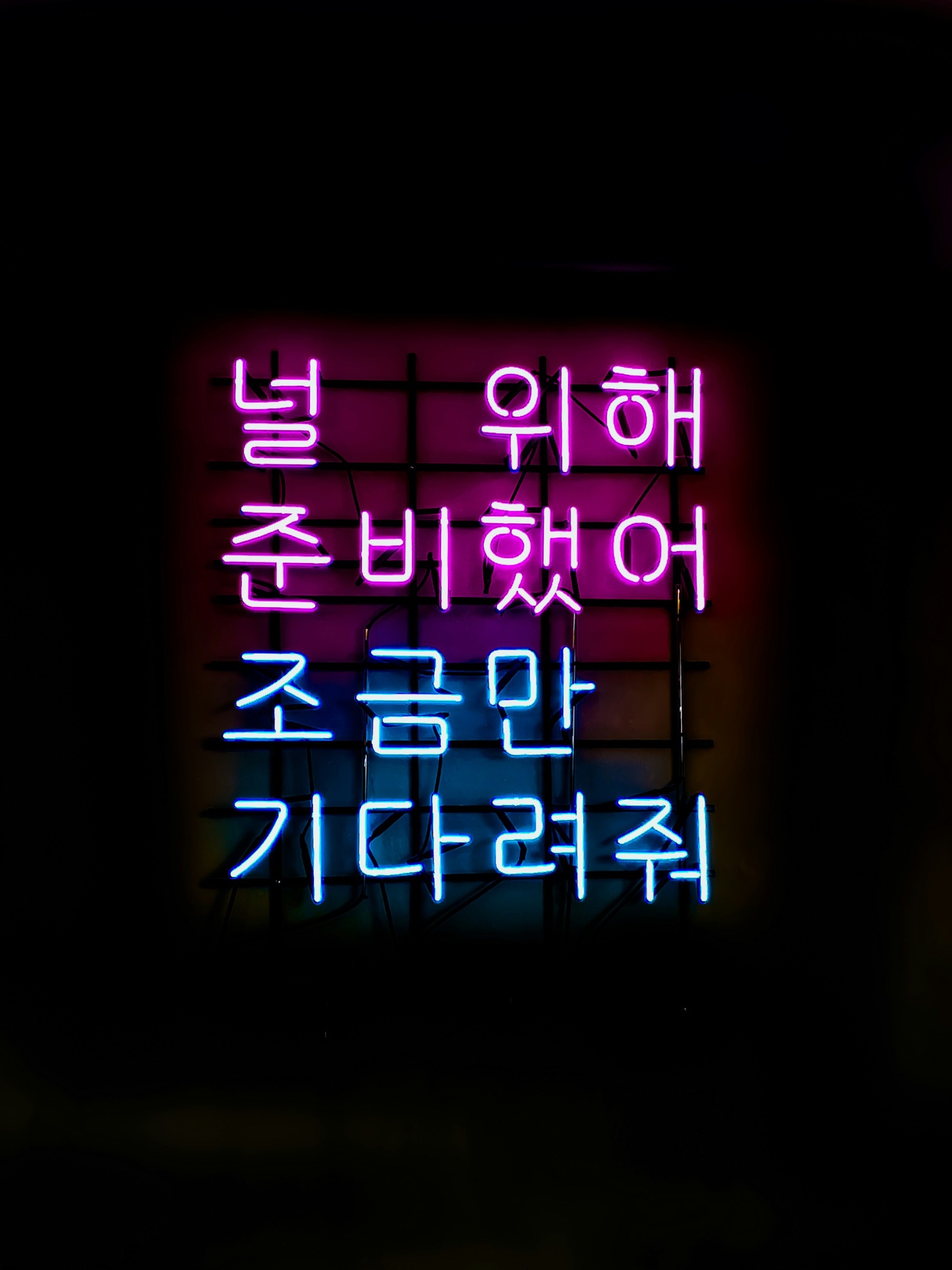Korean is often regarded as a challenging language for English speakers to learn, primarily due to its unique alphabet, grammar structure, and cultural nuances. However, unlike some languages with complex writing systems, Korean has characteristics that can actually make it more accessible, especially for motivated learners. This article explores the different aspects that contribute to the difficulty of learning Korean for English speakers and evaluates whether its reputation as a hard language is justified.
Key Linguistic Differences Between Korean and English
The Korean Writing System: Hangul
One of the most remarkable features of Korean is its writing system, Hangul. Unlike languages with thousands of characters (like Chinese or Japanese kanji), Hangul consists of 24 basic letters (14 consonants and 10 vowels), making it one of the simplest and most logical alphabets in the world. King Sejong the Great invented Hangul in the 15th century to improve literacy by providing a system that’s easy to learn.
Why Hangul Is Easy:
- Logical Structure: Hangul is a phonetic alphabet, where each symbol represents a sound. The characters are combined into syllable blocks, which are intuitive once you learn the rules.
- Quick Learning Curve: Most learners can master Hangul in a few days, unlike more complex writing systems like Chinese characters or Japanese kanji.
While Hangul itself is easy to learn, the challenge for English speakers comes in mastering the vocabulary and understanding the nuances of its grammar.
Grammar and Sentence Structure
Korean grammar is vastly different from English, and it poses one of the biggest hurdles for learners:
- Subject-Object-Verb (SOV) Structure: Unlike English, which follows a subject-verb-object (SVO) order, Korean typically follows a subject-object-verb structure. For example, “I eat an apple” in English becomes “I an apple eat” (나는 사과를 먹어요) in Korean.
- Particles: Korean uses particles to indicate the grammatical roles of words in a sentence (such as the subject, object, or topic). For instance, “이/가” marks the subject, while “을/를” marks the object. Understanding how and when to use these particles is essential, but it can be confusing for beginners.
- Verb Conjugation: Verbs in Korean change based on tense, mood, and the level of politeness, rather than the subject. There are no verb conjugations for person or number, which simplifies certain aspects compared to English. However, learning the correct verb endings and when to use formal or informal speech requires consistent practice.
Practical Tips for Mastering Korean Grammar:
- Start with Simple Sentences: Begin by constructing basic sentences to understand the SOV structure. Gradually increase complexity as you become more comfortable.
- Use Flashcards for Particles: Create flashcards for particles and their uses. Practice by forming sentences and identifying the role of each word.
- Practice Verb Endings Regularly: Use verb conjugation charts and practice changing verb endings with different subjects and levels of formality.
Honorifics and Levels of Politeness
One of the most culturally embedded aspects of the Korean language is the use of honorifics and different speech levels depending on the relationship between the speakers. There are multiple levels of formality in Korean, ranging from highly formal to casual. Choosing the correct form depends on factors like age, social status, and familiarity with the person you’re speaking to.
For English speakers, who are not used to altering their speech significantly based on hierarchy, navigating these levels of formality can be challenging. Misusing them can lead to misunderstandings or come off as disrespectful, especially in professional or social settings in Korea.
How to Navigate Honorifics:
- Observe Native Conversations: Watch Korean dramas or listen to podcasts. Pay attention to how speakers change their language based on whom they are addressing.
- Learn Basic Honorific Titles: Start with common titles like “선생님” (teacher) and “사장님” (boss) and the situations where they’re used.
- Practice with Native Speakers: Engage in language exchanges where you can practice speaking formally and informally in a supportive environment.
Pronunciation and Intonation
Korean pronunciation is generally more straightforward than languages like Chinese, as it is not tonal. However, there are certain sounds in Korean that are difficult for English speakers:
- Double Consonants: Korean has a set of tense consonants (like ㄲ, ㄸ, ㅃ) that are pronounced with more force, and these can be tricky for non-native speakers to distinguish.
- Sound Shifts and Liaison: In natural speech, certain sounds in Korean words can change or blend together, making it difficult for learners to recognize words in conversation.
While pronunciation might pose some initial challenges, it is less complicated compared to tonal languages or those with more complex consonant clusters.
Tips for Improving Korean Pronunciation:
- Use Phonetic Guides: Use resources that provide phonetic breakdowns of words and practice repeating them aloud.
- Listen and Mimic: Spend time listening to native speakers through music, podcasts, or YouTube videos. Try to mimic their pronunciation and intonation closely.
- Record Yourself: Record your speech and compare it with native speakers to identify areas for improvement.
Cultural and Social Factors
Cultural Context and Social Nuances
Understanding Korean culture is crucial for language learners, as much of the language’s structure is influenced by concepts like respect, hierarchy, and collectivism. For example, it’s common to address someone by their job title or honorific rather than by name. Without a grasp of these cultural elements, it can be difficult to fully understand the nuances of the language.
Practical Cultural Insights:
- Participate in Cultural Events: Attend Korean festivals or cultural meetups to immerse yourself in the culture and understand social customs firsthand.
- Study Korean History: Understanding historical contexts can provide insights into why certain expressions or social norms exist.
- Join Online Communities: Participate in forums or social media groups focused on Korean culture and language learning.
Immersive Opportunities and Resources
Korean is becoming more accessible due to the global rise in popularity of Korean culture (K-pop, K-dramas, etc.). This exposure provides learners with more opportunities for immersion through media, online communities, and language exchange platforms. However, if you’re not living in Korea or engaging regularly with native speakers, it can be challenging to develop fluency.
Strategies for Immersive Learning:
- Leverage Media: Watch Korean shows with subtitles and gradually switch to Korean subtitles or none at all as your understanding improves.
- Engage in Language Exchanges: Use platforms like Tandem or HelloTalk to connect with native speakers for regular practice.
- Attend Language Meetups: Look for local language exchange events or cultural meetups to practice speaking and learn more about Korean culture.
Is Korean Really That Difficult?
The answer to whether Korean is difficult to learn depends on what you aim to achieve. For those focusing on basic conversation or reading, Korean can be less difficult than expected due to its logical writing system and relatively straightforward pronunciation. However, achieving full fluency, especially in writing or formal communication, requires dedication and consistent practice.
The Role of Motivation and Consistency
As with any language, the key to mastering Korean lies in motivation and regular practice. The initial stages of learning—like memorizing Hangul and basic grammar—can be conquered fairly quickly. However, advancing to more complex levels, such as understanding honorifics, mastering sentence structures, and building a substantial vocabulary, requires persistence.
Tips for Staying Motivated:
- Set Achievable Goals: Break down your learning process into small, achievable goals, such as learning a set number of new words each week.
- Track Your Progress: Keep a journal of your language learning journey. Document what you’ve learned and celebrate small victories to stay motivated.
- Find a Study Buddy: Partner with someone who is also learning Korean to keep each other accountable and practice together.
Korean can be challenging for English speakers due to its grammar, honorific system, and cultural nuances. However, the writing system (Hangul) is one of the easiest in the world to learn, and pronunciation is generally more manageable compared to languages with more complex phonetic systems. With the right resources, motivation, and consistent exposure, learning Korean is entirely achievable and can be a rewarding experience, especially given the rich culture and entertainment that accompanies the language.




